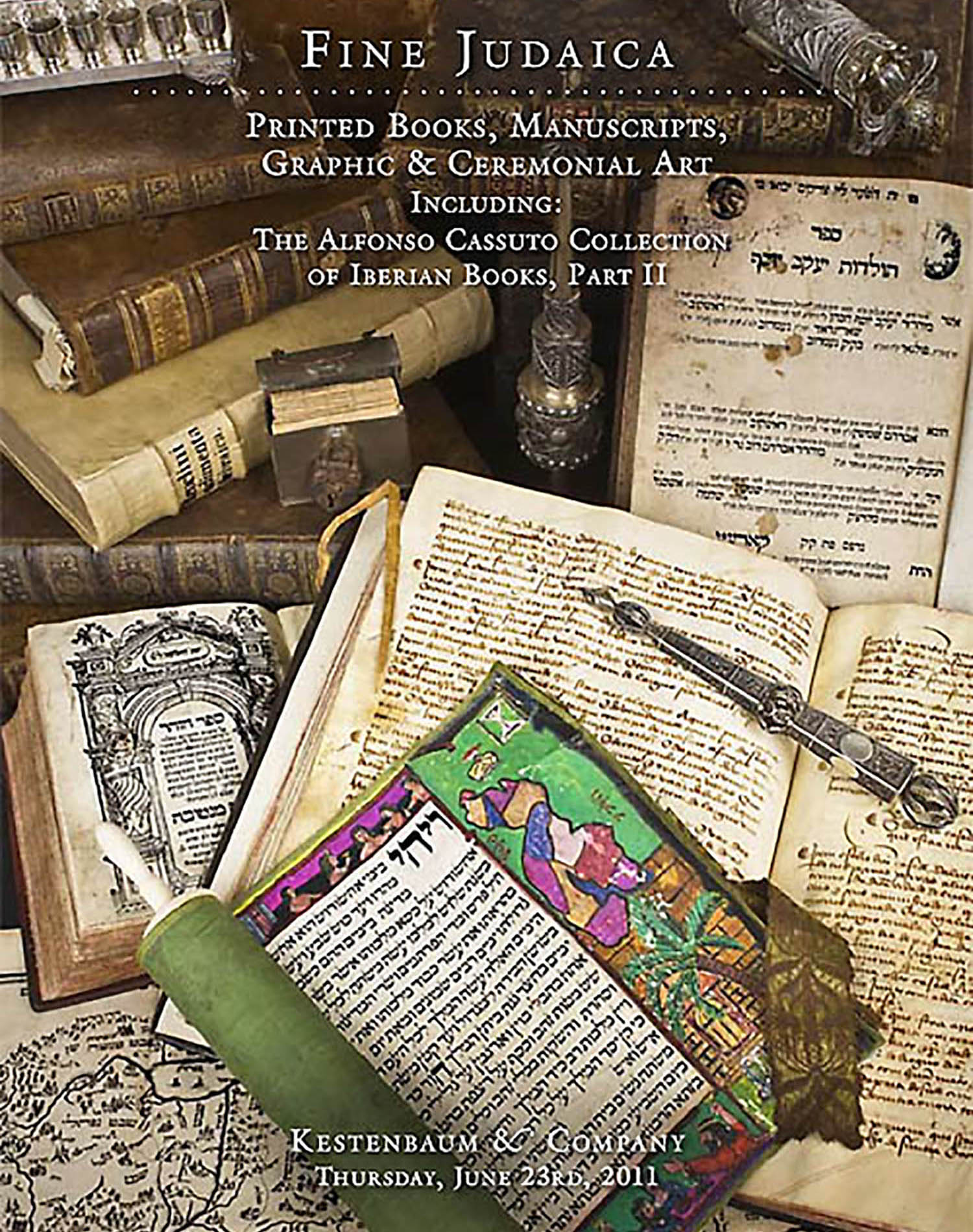Las Excelencias de los Hebreos [The Excellences of the Hebrews].

AUCTION 51 |
Thursday, June 23rd,
2011 at 1:00
Fine Judaica: Printed Books, Manuscripts Graphic & Ceremonial Art Including: The Alfonso Cassuto Collection of Iberian Books, Part II
Lot 2
CARDOSO, ISAAC (FERNANDO).
Las Excelencias de los Hebreos [The Excellences of the Hebrews].
Amsterdam: David de Castro Tartas 1679
Est: $5,000 - $7,000
PRICE REALIZED $13,000
<<FIRST EDITION OF A MASTERPIECE OF JEWISH APOLOGETICS.>>
This famous apology of Judaism was written by the former converso, the physician Fernando(Isaac) Cardoso (1604-81). Born in Trancoso, Portugal, Cardoso was one of the many Portuguese New Christian immigrants who settled in Spain in the early seventeenth century. He studied at Salamanca and was accorded the title of “phisico mayor,” or court physician by Philip IV. Afterwards he practiced as a physician in Madrid, where he reached the highest literary and social circles. Nonetheless, fearing persecution by the Office of the Inquisition, he fled to Venice and subsequently settled in Verona.
His comprehensive apologetic work Las Excelencias de los Hebreos contains numerous references to the Spanish and Portuguese Inquisition, anti-Jewish Iberian authors and the history of sixteenth and seventeenth century Marranos in Spain and Portugal - with many first-hand anecdotes. It is divided into ten parts, each with ten chapters. Part I extols the “excelelcias”, or admirable qualities of the Jewish people. In part II, Cardoso refutes ten “calunias” slanders against the Jews. Passionate and eloquent, the work is not only an erudite defense of Jewry as a whole, but also a justification of Cardoso’s own choice to live as a Jew.
The work has been praised as “a masterpiece of Jewish anti-defamation, perhaps the most striking since Josephus’s Contra Apionem.” See Y. H. Yerushalmi, From Spanish Court to Italian Ghetto: Isaac Cardoso, A Study in Marranism and Jewish Apologetics (1971) and Bibliotheca Rosenthaliana, Treasures of Jewish Booklore (1995) p. 21.
